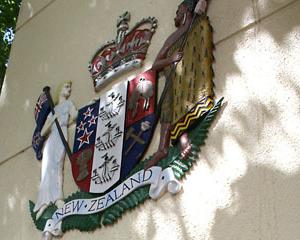Name suppression for a former All Black on child assault charges flies in the face of Parliament's aims, a legal expert says.
The former rugby star is the latest in a line of sportsmen in the criminal courts allowed to keep their identities secret.
Yesterday, he pleaded guilty to assaulting a child in September.
An Auckland District Court judge granted him name suppression until his next appearance - and it is possible his name may never be able to be published.
He could get a discharge without conviction when he is sentenced in February and could apply for a permanent court order banning publication of his name.
The court heard the boy's school wanted him examined to ensure he had not suffered long-term injuries.
It is believed the case is one of excessive discipline, and the former player has been ordered to undergo anger management counselling before he next appears in court.
He was reportedly granted name suppression because of his standing in sporting circles and the community, and to protect the identity of the complainant.
Legal experts say the name secrecy goes against Parliament's wishes to tighten suppression laws and a child safety advocate says well-known people have even greater responsibility to act positively.
Another former high-profile All Black appeared in a Wellington court last week, and he too was given name suppression.
In that case, the 45-year-old was charged with assaulting his partner while out celebrating the All Blacks World Cup victory over France, resisting police and possession of cannabis.
The Criminal Procedure Bill, passed in October, makes it clear that "wealth, reputation or public awareness" should not be factors in gaining name suppression.
It would come into effect in March and allowed for a strong presumption of open justice, Auckland University Faculty of Law associate professor Scott Optican said.
"This is one of the reasons the Criminal Procedure Bill was passed because name suppression is so open-ended and often goes out without any explanation or rationale from the judges at all. It doesn't mean it's not justified in some cases ... but the current provision that allows it is very broad-based."
If the former All Black was discharged without conviction, he might have higher grounds for permanent name suppression because the suppression was a way of not allowing the offending's consequences to be disproportionate.
Prof Optican said in that instance a person was already escaping without penalty.
Associate Prof Bill Hodge, who also works at Auckland University, said although the assault was minor, the defendant was a top sportsman who should not receive name suppression because of his fame.
"Perhaps the victim, who is a child, would be identified. That would be the only exception I'm willing to give if it compromises, identifies, embarrasses the child ...
"Sportsmen should not get name suppression because they're sportsmen ..."
Barnardos chief executive Murray Edridge last night said high profile people need to think about the role modelling they offer.












